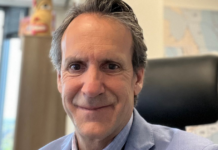The International Coalition Against Illicit Economies ICAIE published a report that referred to Canada as a “safe haven” and an “international hub” for crime organizations to thrive in the country’s “booming” market for illicit trade.
“Canada has become a safe zone for the world’s most notorious crime groups and threat networks that are harming Canada’s national security and imperiling the security of other nations,” reads the report.
Items most commonly trafficked in Canada’s booming illicit economy are fentanyl and fake pharmaceuticals but there is also a growing market of illegal alcohol and cross-border money laundering.
“Today, Canada is not merely a consumer of illicit goods and contraband, but increasingly serves as a hub of illicit trade, production and distribution of illicit goods, an exporter of such contraband, and a money laundering safe haven for a potpourri of criminal networks,” wrote authors Calvin Chrustie and David M. Luna.
“Canada remains a financial haven for kingpins, kleptocrats, oligarchs, and corrupt officials to reinvest stolen funds from their countries in real estate, energy, mining, and other sectors.”
Tens of billions are laundered annually through Canada from the proceeds of human trafficking and the sale of illegal drugs and weapons, according to the report.
The report also noted that Canada is increasingly becoming the new destination for multinational crime syndicates to set up shop.
“Canada has become a major global refuge for transnational crime networks and their dirty money, including the world’s most notorious networks and their leaders like Joaquín ‘El Chapo’ Guzmán and the Sinaloa cartel, Chinese drug kingpin Tse Chi Lop, Hezbollah Financier Altaf Khanani, and other bad actors,” reads the report.
Canada’s biker gangs buy drugs like cocaine and methamphetamine off Mexican cartels via help from Chinese and Iranian criminal networks.
The smuggling of drugs into B.C. is facilitated in particular by Chinese syndicates.
The report alleges that the proliferation of crime throughout Canada is the result of Canadian governments and law enforcement agencies, at every level, holding a “historic dismissal” of transnational crime.
According to the report, Canada drastically lacks a federal strategy to coordinate intelligence agencies like CSIS, CBSA and law enforcement like the RCMP to fight these growing illicit markets.
The ICAIE called for politicians to promptly acknowledge this burgeoning issue and take action to form something akin to a Canadian National Security Strategy, which could cut off the flow of illegal goods to and from the border.
Former RCMP senior operations officer and co-author Chrustie said that Canadian laws have lagged behind the times and are desperately in need of reform for the crimes of the present.
“Stop saying you’re fixing the problem unless you’re having substantive discussions about legal reform, including the Charter, because the other things won’t work,” Chrustie, who is also a senior partner with consulting frim Critical Risk Team, told National Post in an interview.
Chrustie cited rules around disclosure of evidence in trials as not having the adequate protection necessary for sensitive information and evidence, especially when it’s obtained by allied intelligence like the FBI.
“Nothing will change unless we change our disclosure laws to allow us to collaborate and co-operate with our foreign partners, because our laws don’t allow us to protect their information and their intelligence,” said Chrustie, referencing a 1991 Supreme Court ruling that made it a requirment for prosecutors to disclose “all relevant information” to the defence in criminal cases.
Another issue facing Canada is that while there is a “national” police force with the RCMP, there isn’t a “federal policing” force that focuses on tackling modern crimes of national significance, like the ones mentioned in the report, noted Chrustie.
“You don’t see (the U.S.) Drug Enforcement Administration agents doing highway patrol. You don’t see the DEA arresting drunks. The DEA are targeting the Triad and the cartels for 10 years, 20 years, 30 years. They take it seriously, they know it’s very difficult,” he said.
“The people (at the RCMP) are fantastic, but it’s just not sustainable,” added Chrustie. “The model is broken.”





















